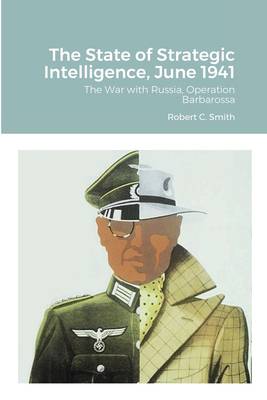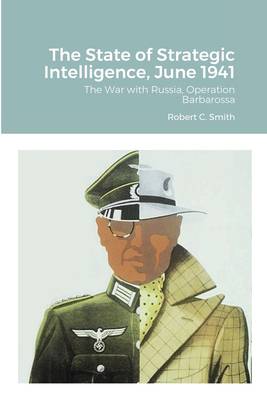
- Afhalen na 1 uur in een winkel met voorraad
- Gratis thuislevering in België vanaf € 30
- Ruim aanbod met 7 miljoen producten
- Afhalen na 1 uur in een winkel met voorraad
- Gratis thuislevering in België vanaf € 30
- Ruim aanbod met 7 miljoen producten
Zoeken
The State of Strategic Intelligence, June 1941
The War with Russia, Operation Barbarossa
Robert C Smith
Paperback | Engels
€ 14,95
+ 29 punten
Omschrijving
One of the least explicable incidents of the Second World War was the almost total surprise-strategic, operational, and tactical-that Germany achieved over the Soviet Union at the start of the Barbarossa campaign. Viewed in modern terms, in which the Soviet Union's intelligence apparatus is sometimes viewed as all-seeing and all-knowing, the need to know why this failure occurred becomes all the more interesting. Much of the difficulty in accurately investigating the matter lies in the almost visceral abhorrence the USSR had toward seriously analyzing many of the events which occurred during the disastrous period between 22 June and 1 October 1941. Smith, an expert in intelligence matters, carefully documents the amazing story behind the German success at surprising the Soviets, and the latter's complete failure of their intelligence apparatus. 31 photos. A Merriam Press World War 2 History.
Specificaties
Betrokkenen
- Auteur(s):
- Uitgeverij:
Inhoud
- Aantal bladzijden:
- 124
- Taal:
- Engels
Eigenschappen
- Productcode (EAN):
- 9781716464034
- Verschijningsdatum:
- 30/10/2020
- Uitvoering:
- Paperback
- Formaat:
- Trade paperback (VS)
- Afmetingen:
- 152 mm x 229 mm
- Gewicht:
- 176 g

Alleen bij Standaard Boekhandel
+ 29 punten op je klantenkaart van Standaard Boekhandel
Beoordelingen
We publiceren alleen reviews die voldoen aan de voorwaarden voor reviews. Bekijk onze voorwaarden voor reviews.











